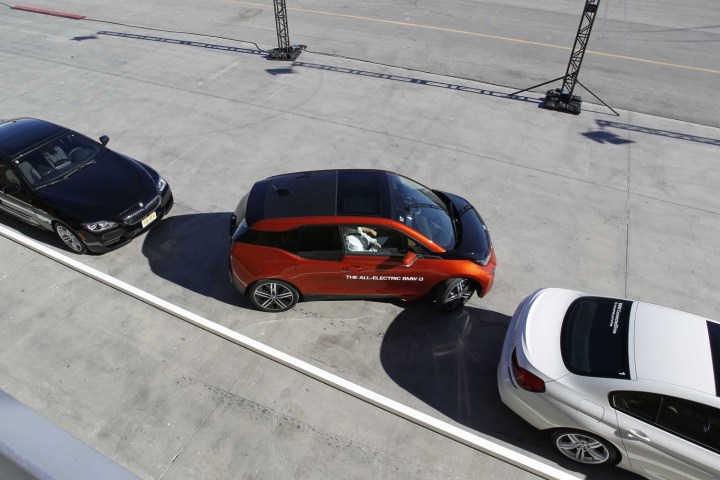
If humans let them, that is. A new survey from AAA (via Autoblog) found that autonomous parking systems generally perform better than humans, but that humans still don’t trust them. That’s partially down to distrust of machines in general, but humans’ inflated sense of their own abilities was a major factor as well, researchers found.
Compared to human drivers who parked manually with the aid of a backup camera, autonomous systems experienced 81 percent fewer curb strikes and used 47 percent fewer maneuvers. The robots also parked 37 percent closer to the curb, and did it 10 percent faster.
The cars tested included a 2015 Lincoln MKC, 2015 Mercedes-Benz ML400 4Matic, 2015 Cadillac CTS Vsport, 2015 BMW i3, and a 2015 Jeep Cherokee Limited. They were selected to encompass a broad range of suppliers, hardware, and system designs. While most of the vehicles in this sample group are luxury models, self-parking capabilities are also trickling down to more mainstream models.
But while this technology may be available and working as advertised, that doesn’t mean consumers want to use it. Carmakers are piling on connectivity features, electronic driver aids, and semi-autonomous systems, but a recent J.D. Power survey found that 20 percent of car owners have never used almost half the technology features in their cars.
When it comes to autonomous parking, that may be at least partially because drivers don’t think they need the help. In the AAA study, 86 percent of men and 71 percent of women felt confident in their own parking abilities. At the same time, 72 percent of both men and women said they distrust autonomous parking systems. A recent survey from eDriving also found that 85 percent of drivers consider themselves “fairly good” or “very good” drivers.
Warranted or not, drivers’ confidence in their own abilities will make it more difficult for manufacturers and tech advocates to sell the public on a more automated future. AAA plans to conduct additional studies focusing on features like blind-spot monitoring and automatic braking. How will people react to those?
Editors' Recommendations
- Don’t let the gimmicks fool you. The Ioniq 5 N is a serious track car
- Don’t wear Vision Pro while driving, U.S. transport chief says
- Cruise woes prompt production halt of fully driverless van
- Dubai Police to deploy driverless patrol cars with AI smarts
- Waymo expands robotaxi service area in San Francisco


